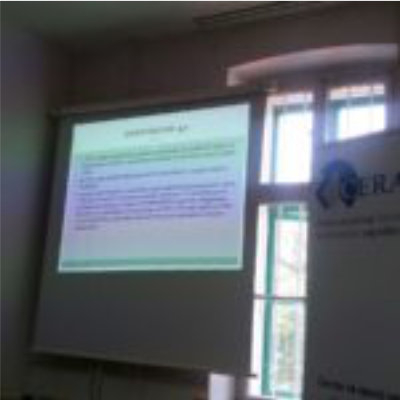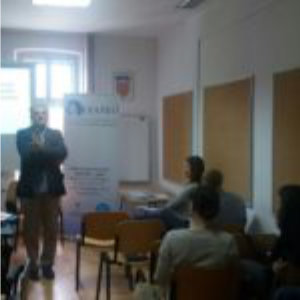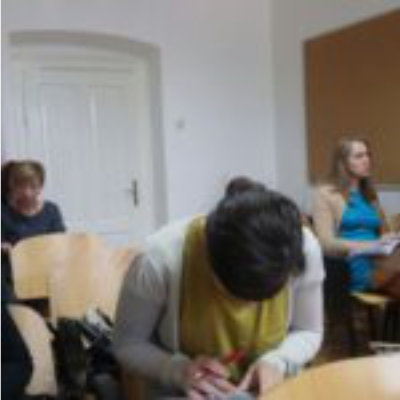On Friday, September 30, 2016, in the premises of the Social Work Study Center, we held the presentation of the results of the Civil Society Organization Sustainability Index for Croatia for the year 2015. Petra Drčić and Iva Mrdeža, on behalf of CERANEO, presented the results of CSOs sustainability index for Croatia in 2015, after which Prof. Ph.D. Gojko Bežovan presented a comparative analysis of the sustainability dimensions of CSOs in Croatia with neighboring countries.
This year, CERANEO created the „Civil Society Organization Sustainability Index for Croatia“ (CSOSI) for the fourth time in a row. This USAID-funded research project is a key tool for measuring the progress of the civil sector in the Central and Eastern Europe and Eurasia region. The CSO Sustainability Index for Central and Eastern Europe and Eurasia monitors the conditions and trends of civil society development in twenty-four countries over the last nineteen years, taking into account the overall stimulating environment for the development of civil society, with an emphasis on: legal environment for CSOs, organizational capacity, financial sustainability, advocacy, service delivery, infrastructure and public image. The report describes and evaluates the development of the civil sector in each country and across the region. This year’s edition of the Report presents the development of civil society during 2015.
Civil Society Organization Sustainability Index for 2015 continues to show a wide spectrum of diversity in the sustainability of civil society organizations operating in the twenty-four countries covered. A slowdown in the growth of democratic institutions and the civil sector has been recorded in some countries, while in some countries this process has completely stopped. On the other hand, given that many countries are on the way to membership in the European Union, civil society advocates for the monitoring and implementation of democratic practices and for good governance. Also, 2015 was marked by a wave of immigrants and refugees arriving on the continent mainly from Syria and Iraq, which had an impact on numerous dimensions of the sustainability of civil society organizations. Civil society organizations have played a key role in providing services to refugees and in promoting information and public dialogue about immigrants, along the main transit routes and beyond.




